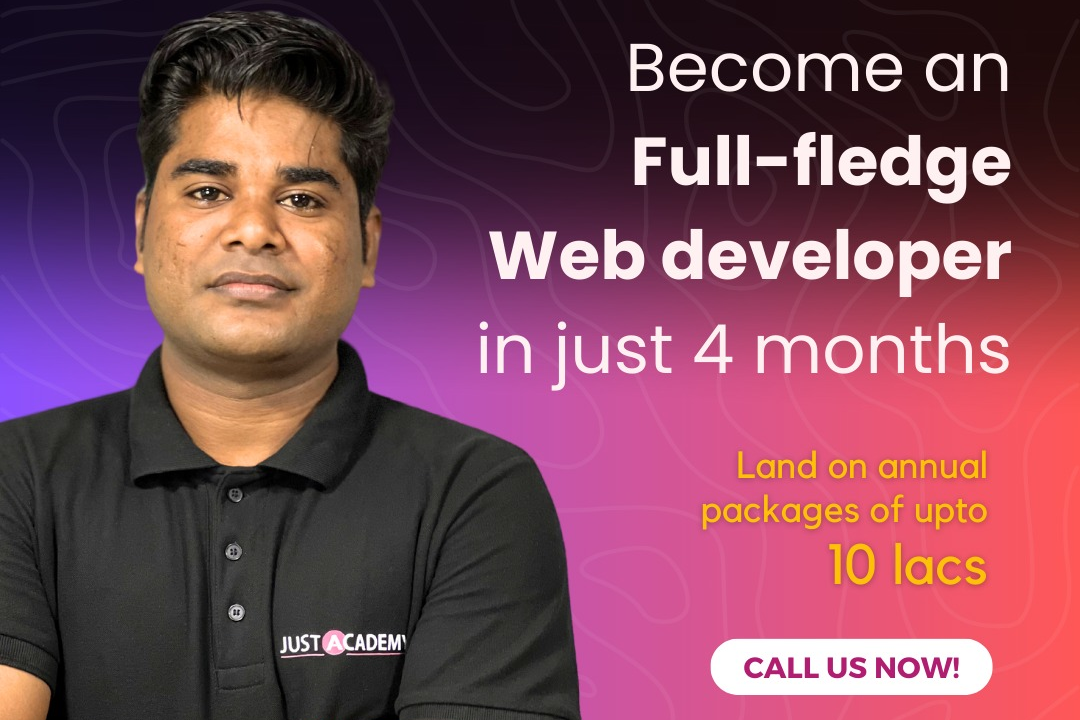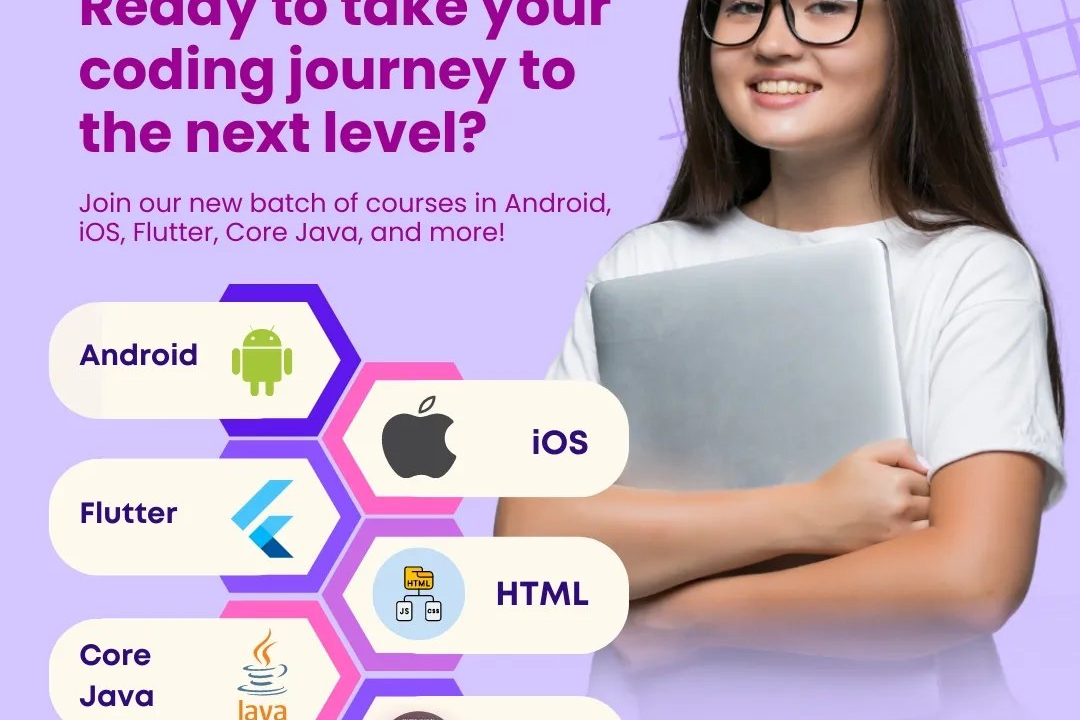Basic Php Programs Or Applications
Basic PHP programs or applications are fundamental projects designed to help beginners understand th
Basic Php Programs Or Applications
Basic PHP programs and applications serve as an essential foundation for beginners in the world of web development. These simple projects enable learners to grasp fundamental concepts such as syntax, data handling, and user interactions, making them invaluable for understanding how dynamic web pages function. By engaging in hands-on practice with tasks like form processing, session management, and database connectivity, learners at JustAcademy can develop their coding skills while building confidence in their abilities. Ultimately, mastering these basics is crucial for progressing to more advanced programming and creating full-scale web applications.
To Download Our Brochure: https://www.justacademy.co/download-brochure-for-free
Message us for more information: +91 9987184296
Basic PHP programs and applications serve as an essential foundation for beginners in the world of web development. These simple projects enable learners to grasp fundamental concepts such as syntax, data handling, and user interactions, making them invaluable for understanding how dynamic web pages function. By engaging in hands on practice with tasks like form processing, session management, and database connectivity, learners at JustAcademy can develop their coding skills while building confidence in their abilities. Ultimately, mastering these basics is crucial for progressing to more advanced programming and creating full scale web applications.
Course Overview
The ‘Basic PHP Programs or Applications’ course at JustAcademy is designed to introduce learners to the fundamental concepts of PHP programming through practical, hands-on projects. Participants will explore essential topics such as PHP syntax, data types, control structures, and functions while gaining experience in building dynamic web applications. The course emphasizes real-time project development, allowing students to apply their knowledge in realistic scenarios, including form handling, session management, and database integration. By the end of the course, learners will develop the confidence and skills necessary to create functional web applications and lay a solid foundation for further study in web development.
Course Description
The “Basic PHP Programs or Applications” course at JustAcademy is an engaging introduction to PHP programming, aimed at beginners eager to learn the fundamentals of web development. Participants will explore essential PHP concepts such as syntax, data types, control structures, and functions through a series of hands-on projects. Real-time applications will be developed to solidify learning, including form handling, session management, and simple database interactions. By the end of the course, students will have the skills and knowledge to create dynamic web applications, laying the groundwork for more advanced programming studies.
Key Features
1 - Comprehensive Tool Coverage: Provides hands-on training with a range of industry-standard testing tools, including Selenium, JIRA, LoadRunner, and TestRail.
2) Practical Exercises: Features real-world exercises and case studies to apply tools in various testing scenarios.
3) Interactive Learning: Includes interactive sessions with industry experts for personalized feedback and guidance.
4) Detailed Tutorials: Offers extensive tutorials and documentation on tool functionalities and best practices.
5) Advanced Techniques: Covers both fundamental and advanced techniques for using testing tools effectively.
6) Data Visualization: Integrates tools for visualizing test metrics and results, enhancing data interpretation and decision-making.
7) Tool Integration: Teaches how to integrate testing tools into the software development lifecycle for streamlined workflows.
8) Project-Based Learning: Focuses on project-based learning to build practical skills and create a portfolio of completed tasks.
9) Career Support: Provides resources and support for applying learned skills to real-world job scenarios, including resume building and interview preparation.
10) Up-to-Date Content: Ensures that course materials reflect the latest industry standards and tool updates.
Benefits of taking our course
Functional Tools
1 - PHP: The fundamental tool for the course is PHP itself, which stands for Hypertext Preprocessor. It is an open source scripting language specifically designed for web development. Students will learn how to write PHP scripts to create dynamic web pages, process form data, interact with databases, and implement various server side functions. By gaining hands on experience with PHP, students familiarize themselves with syntax, functions, and core programming concepts that are critical for building web applications.
2) MySQL: MySQL is a popular relational database management system that students will use to store and manage data for their PHP applications. The course covers how to design databases, write SQL queries, and establish connections between PHP scripts and the MySQL database. This integration is essential for creating data driven applications, allowing students to retrieve, update, and manipulate information efficiently, which is a key aspect of modern web development.
3) XAMPP: XAMPP is a widely used open source cross platform web server solution stack package that includes Apache, MySQL, and PHP. In this course, students will set up and configure XAMPP on their local machines to create a development environment for testing their PHP applications. By using XAMPP, learners can simulate a production environment, access their projects through a web browser, and gain practical experience in managing a server environment.
4) Visual Studio Code (VS Code): Visual Studio Code is a powerful and versatile code editor that provides essential features for PHP development. The course encourages students to use VS Code for writing, debugging, and organizing their code effectively. With extensions specifically designed for PHP, it enhances productivity by offering syntax highlighting, code snippets, and integrated terminal support. Students will learn how to leverage these tools to streamline their coding process and improve code quality.
5) Git and GitHub: Version control is a critical aspect of software development, and Git serves as the primary tool for this purpose. Students will learn how to use Git for tracking changes in their code and collaborating with others. The course also introduces GitHub, a web based platform that hosts Git repositories. By using Git and GitHub, students can manage their projects, contribute to collaborative work, and showcase their portfolios, giving them a competitive edge in the job market.
6) Bootstrap: As part of the front end development toolkit, Bootstrap is a popular framework for creating responsive and mobile first websites. Although the primary focus of the course is on PHP, students will also be introduced to Bootstrap to understand how to style their PHP applications effectively. By learning to implement Bootstrap components, students can enhance the user interface of their applications, ensuring they are visually appealing and user friendly.
These tools collectively provide students with comprehensive knowledge and practical experience, enabling them to develop robust PHP applications while preparing them for real world industry scenarios.
Here are additional points that can enhance the article, providing a more in depth understanding of the tools and technologies involved in the PHP course offered by JustAcademy:
7) HTML/CSS: Fundamental to web development, HTML (Hypertext Markup Language) and CSS (Cascading Style Sheets) are essential for creating the structure and design of web pages. The course emphasizes the importance of mastering HTML for building page layouts and utilizing CSS for styling. Students will learn how to seamlessly integrate PHP with HTML/CSS to create a dynamic and aesthetically pleasing web interface.
8) JavaScript: While PHP handles server side scripting, JavaScript plays a crucial role on the client side. This course introduces students to JavaScript fundamentals, enabling them to add interactivity and enhance user experience. Understanding the basics of JavaScript allows learners to manipulate the Document Object Model (DOM) and create responsive features that work alongside their PHP backend.
9) RESTful API Development: As web applications increasingly rely on data exchange between different systems, understanding RESTful API (Application Programming Interface) development is vital. The course will cover how to create and consume APIs using PHP, enabling students to build applications that can communicate with external services. This knowledge equips students with the skills to implement integration features that are essential for modern web applications.
10) Debugging and Testing: Debugging is an essential skill for developers. The course will teach students how to identify, troubleshoot, and fix issues in their PHP code using built in PHP debugging tools and techniques. Additionally, they will learn about testing methodologies, such as unit testing, to ensure the functionality and reliability of their applications before deployment.
11 - Security Best Practices: Understanding web security is crucial for any developer. The course will address common security vulnerabilities, such as SQL injection and cross site scripting (XSS), and teach students how to implement best practices to protect their applications. Knowledge of security measures equips students with the ability to develop secure PHP applications and maintain user trust.
12) Framework Introduction (Laravel): While the course focuses primarily on core PHP, an introduction to a PHP framework like Laravel can provide students with insights into modern development practices. Laravel's elegant syntax, built in features, and structure can enhance productivity and coding efficiency. Students will learn the basics of MVC (Model View Controller) architecture and how it simplifies application development.
13) Content Management Systems (CMS): Understanding how to work with popular PHP based CMS platforms like WordPress can be a valuable addition to the curriculum. Students will explore the fundamentals of customizing themes, creating plugins, and developing functionality within a CMS environment, widening their skill set for job opportunities in web development.
14) Real time Project Implementation: The course culminates in hands on real time projects where students apply their learned skills to build fully functional web applications. This practical experience reinforces their understanding and helps them develop a portfolio, showcasing their capabilities to potential employers.
15) Collaboration and Communication Skills: In addition to technical skills, the course will emphasize the importance of collaboration and communication in a development environment. Students will work in teams on projects, learning how to share ideas, provide feedback, and implement code reviews, essential skills for any developer in today's job market.
These additional points provide a more comprehensive overview of the skills and knowledge that students will acquire in the PHP course, positioning them for success in the competitive field of web development.
Browse our course links : https://www.justacademy.co/all-courses
To Join our FREE DEMO Session:
This information is sourced from JustAcademy
Contact Info:
Roshan Chaturvedi
Message us on Whatsapp: +91 9987184296
Email id: info@justacademy.co












